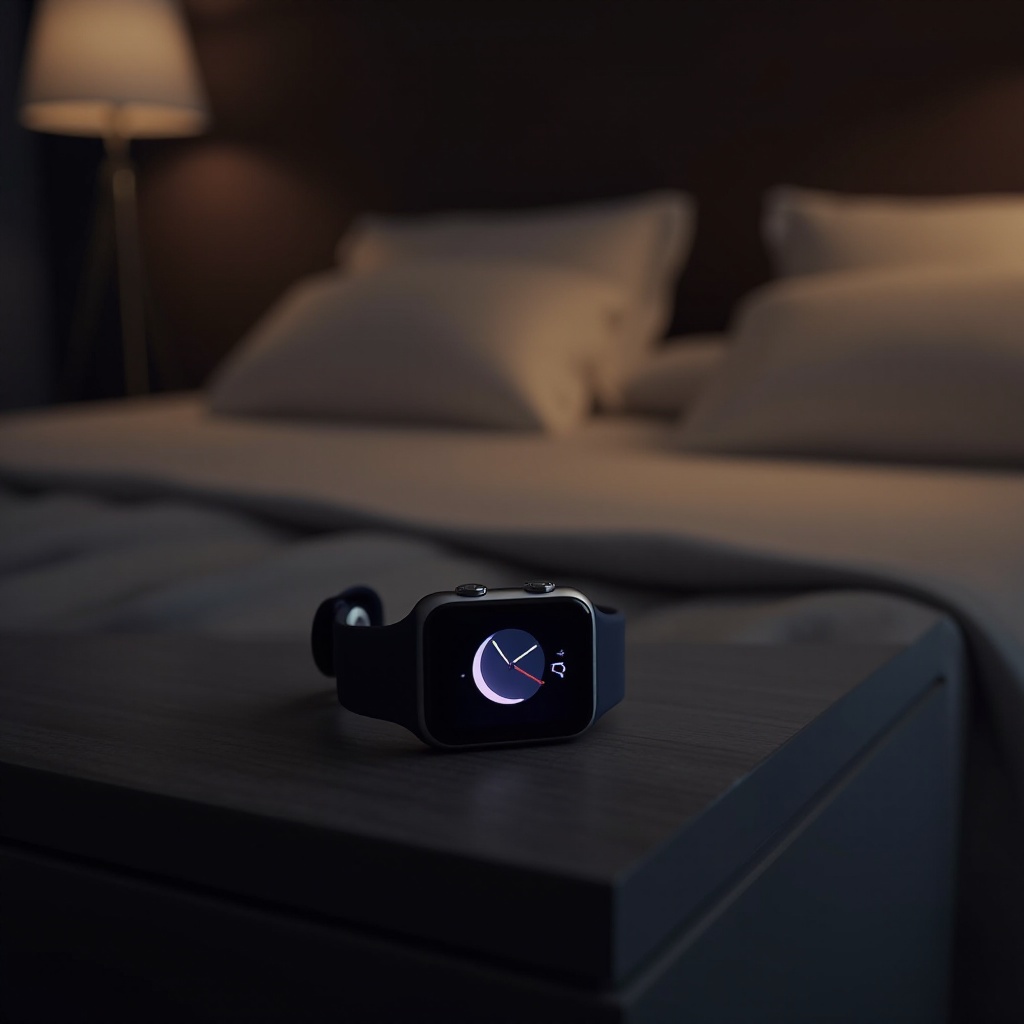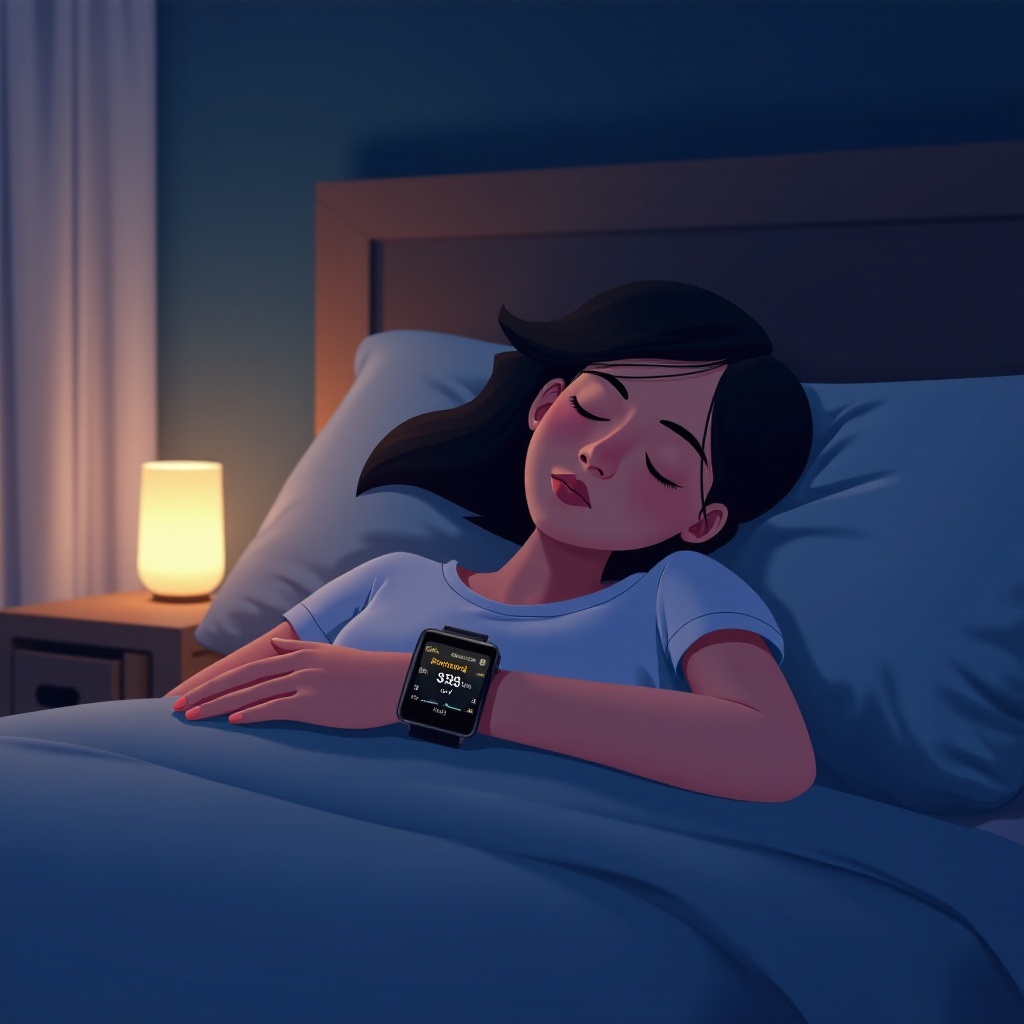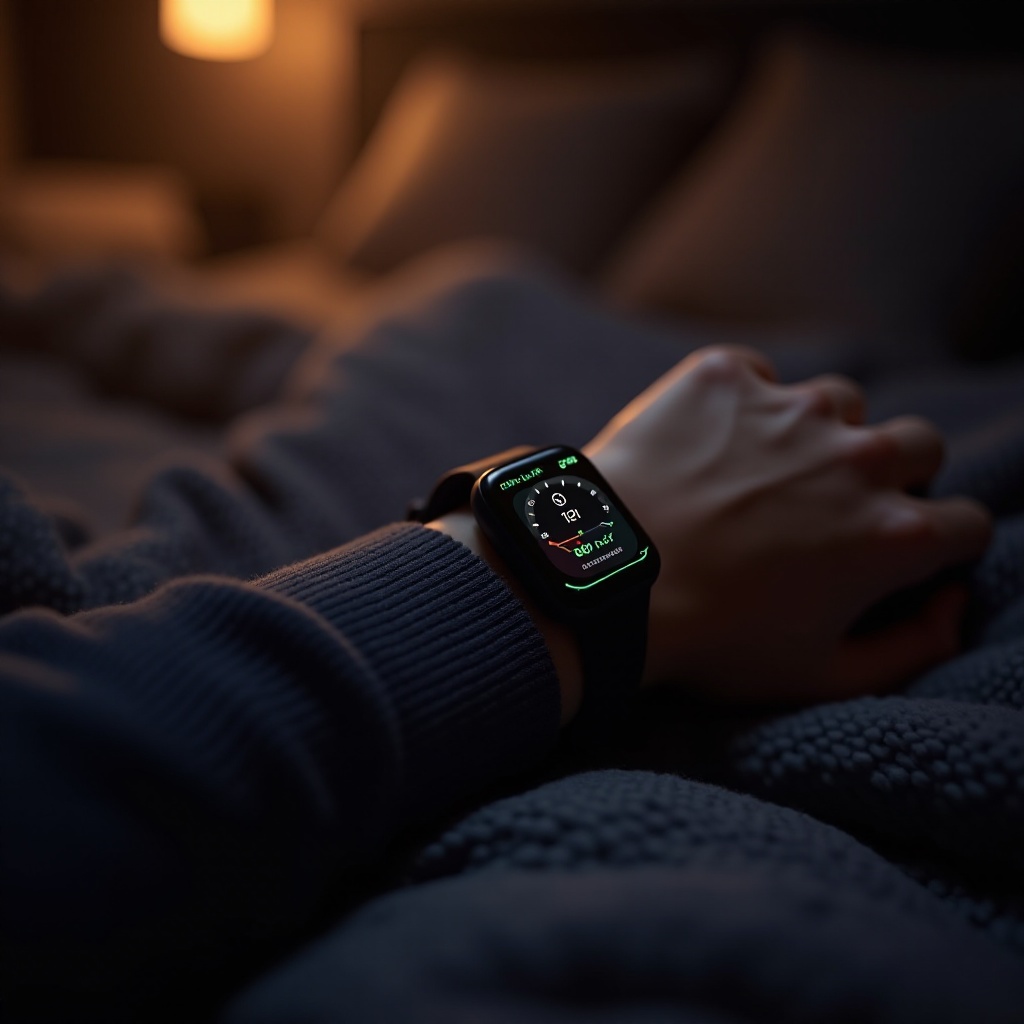Introduction
Smartwatches have evolved beyond simple step counters, transforming into sophisticated health monitors. One of their standout features is sleep tracking, which provides valuable insights into sleep quality and patterns. Understanding how smartwatches detect sleep can help users appreciate this technology and utilize it for better health and well-being.

The Technology Behind Smartwatch Sleep Detection
Smartwatches use a combination of sensors and algorithms to detect and monitor sleep. Key technologies include:
-
Accelerometers: These sensors track movements and can detect when your body is still, indicating potential sleep. They measure the frequency and intensity of these movements to distinguish between different sleep stages.
-
Heart Rate Monitors: Heart rate patterns vary between sleep stages. Smartwatches track your heart rate continuously, identifying changes that correspond with deep sleep, light sleep, and REM sleep.
-
Gyroscopes: These sensors work alongside accelerometers to provide more precise movement data, helping to better distinguish between sleep stages.
-
Optical Sensors: These sensors use light to monitor blood flow, offering another layer of data on heart rate variability, which is crucial for sleep stage analysis.
By integrating data from these sensors, smartwatches employ sophisticated algorithms to estimate when you fall asleep, the duration of your sleep, and the quality of your rest.
How Smartwatches Track Different Sleep Stages
The accuracy and detail with which smartwatches track sleep stages are remarkable, enhancing our understanding of sleep patterns:
-
Light Sleep: Characterized by lighter sleep and easy arousal. The combination of decreased movement and moderate heart rate variability helps smartwatches detect this stage.
-
Deep Sleep: Vital for physical recovery and health. During deep sleep, body movement is minimal, and heart rate significantly drops. Smartwatches use these cues to identify this sleep stage.
-
REM Sleep: Essential for cognitive functions like memory and learning. REM is typified by rapid eye movement and increased heart rate. Smartwatches detect the unique pattern of heart rate and slight body movements to pinpoint this stage.
By constantly analyzing these variables, smartwatches map out a complete sleep cycle, offering insights into the duration and quality of each stage. Transition from knowing how the watches track sleep stages to the accuracy of these features is vital for users to fully trust and benefit from their devices.
Factors Influencing Sleep Tracking Accuracy
Several factors can affect the accuracy of sleep tracking on smartwatches:
-
Sensor Quality: High-quality sensors provide more reliable data. The better the sensors, the more accurate the sleep tracking.
-
Fit and Placement: Properly wearing the smartwatch ensures better data collection. A loose fit might cause incorrect readings.
-
Algorithm Efficiency: Advanced algorithms can better process the data from sensors, providing more accurate sleep insights.
-
External Factors: Surrounding noises, caffeine intake, and alcohol consumption can affect sleep patterns, impacting the data collected by smartwatches.
Understanding these factors can help users optimize their use of smartwatches for more accurate sleep data.

Benefits of Using a Smartwatch for Sleep Tracking
Integrating sleep tracking into your daily routine offers numerous advantages:
-
Improved Sleep Awareness: Knowing your sleep patterns helps identify unhealthy habits, enabling you to make necessary adjustments.
-
Health Insights: Poor sleep is linked to various health issues such as obesity, diabetes, and cardiovascular diseases. Tracking sleep can be the first step towards better health management.
-
Personalized Recommendations: Many smartwatches provide personalized tips based on sleep data, helping users to improve their sleep quality over time.
-
Motivation for Better Habits: Seeing your sleep data can motivate you to establish a consistent sleep schedule, contributing to overall better health.
-
Integration with Other Health Data: Combining sleep data with other health metrics like activity levels and heart rate offers a comprehensive view of your health.
By leveraging these benefits, users can enhance their sleep quality and overall health significantly. As sleep and health are interconnected, utilizing smartwatches for sleep tracking can be a game changer in health monitoring.
Tips for Accurate Sleep Tracking with a Smartwatch
To ensure accurate sleep tracking, consider the following tips:
-
Wear Your Watch Correctly: Make sure the smartwatch is snug but comfortable. It should stay in place throughout the night.
-
Enable Heart Rate Tracking: Keep heart rate monitoring activated for more precise sleep stage detection.
-
Maintain a Regular Sleep Schedule: Consistency helps the smartwatch provide more accurate data.
-
Update Your Device: Ensure your smartwatch’s firmware is up-to-date to benefit from the latest enhancements in sleep tracking technology.
-
Avoid External Interference: Minimize caffeine and alcohol intake before bed and maintain a quiet, dark sleeping environment for the best results.
Implementing these strategies will help you get the most out of your smartwatch’s sleep tracking capabilities. Transitioning from these practical tips to exploring the best devices will aid users in making informed choices.

Popular Smartwatches for Sleep Tracking in 2024
Selecting a reliable smartwatch is crucial for accurate sleep tracking. Here are some of the top choices:
-
Apple Watch Series 9: Known for its advanced sensors and seamless integration with the Health app, it offers detailed sleep insights.
-
Fitbit Sense 2: Combines a variety of health monitoring features with precise sleep tracking, making it a top pick for those keen on health data.
-
Samsung Galaxy Watch 6: Offers robust sleep tracking features with personalized bedtime routines and coaching to improve sleep quality.
-
Garmin Venu 3: Ideal for athletes, combining fitness and sleep tracking with long battery life, ensuring it monitors your sleep without interruption.
These devices are at the forefront of sleep tracking technology, offering users valuable insights into their sleep health.
Conclusion
Understanding how smartwatches detect sleep and the benefits they offer can significantly improve your approach to health and well-being. By leveraging advanced sensors and sophisticated algorithms, smartwatches provide detailed sleep insights, helping users make informed decisions about their health. To maximize the accuracy and benefits of sleep tracking, it’s crucial to choose a reliable device, wear it correctly, and maintain a healthy sleep routine.
Frequently Asked Questions
How accurate is smartwatch sleep tracking?
While not as precise as polysomnography tests, many smartwatches offer reasonably accurate sleep tracking, utilizing sensors and algorithms to provide useful insights.
Can I trust the sleep data from my smartwatch?
Yes, if you wear the smartwatch correctly and choose a reliable model with advanced sensors, the data can be trusted for general sleep pattern monitoring.
Which smartwatch is best for sleep tracking in 2024?
The Apple Watch Series 9, Fitbit Sense 2, Samsung Galaxy Watch 6, and Garmin Venu 3 are some of the best options for sleep tracking in 2024. They offer advanced features and reliable data.
